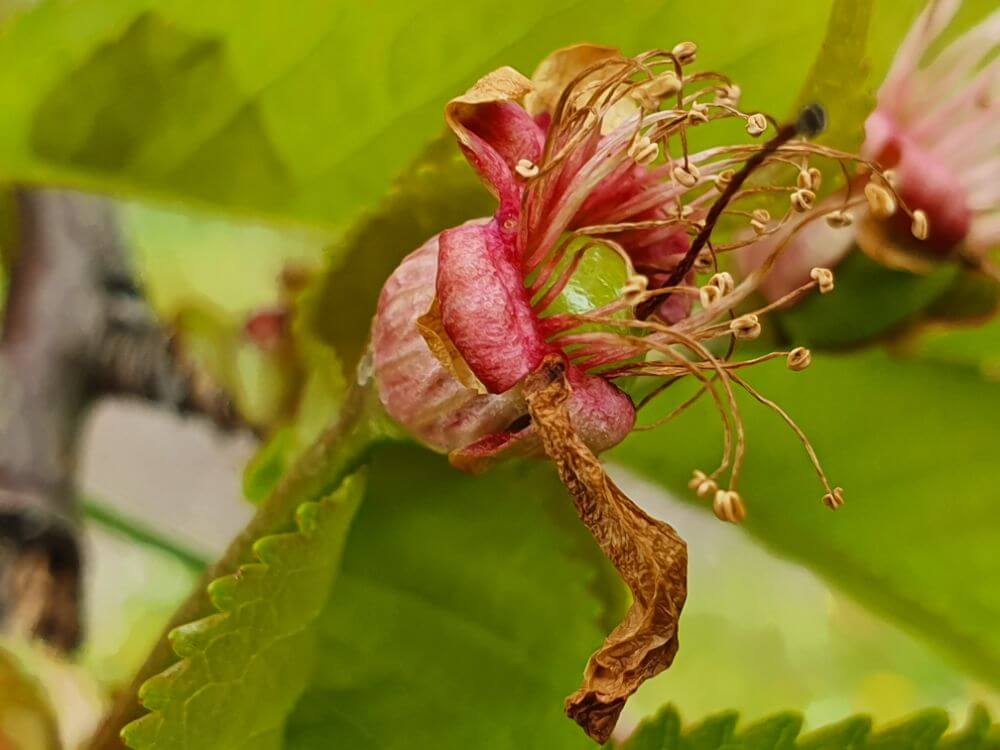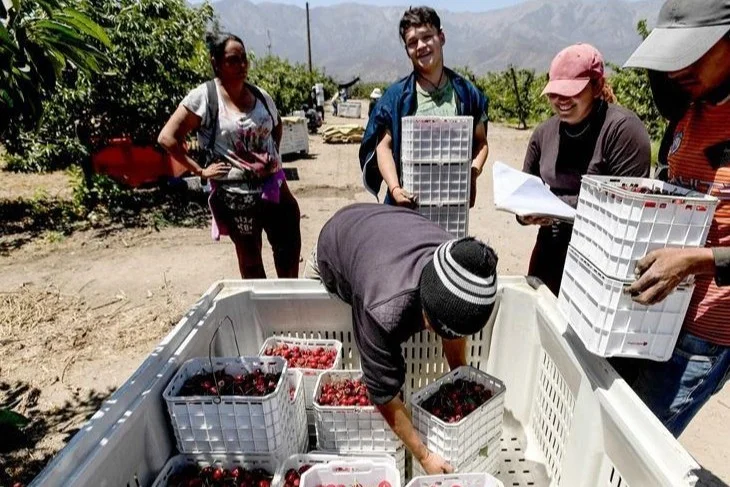Three years ago, the "Morisi Carlo" company from Bentivoglio, in the province of Bologna (IT), began cultivating cherries under greenhouse conditions. This innovative idea spans 1040 square meters, with one thousand plants arranged with a spacing of 2 meters by 0.50 meters in rows. "Thanks to the protection, the cherries are safe, the number of treatments is reduced by 75% compared to open field cultivation, and the quality is excellent," says Moreno Morisi, owner of the family business.
Morisi has applied all his experience, assisted by technician Matteo Ferrari from Fruitnetsystem, to achieve these results. "Growing in a greenhouse is not easy, especially with fruit trees. My goal is not to advance the harvest, but to complete the fruit maturation without weather damage. About ten days ago, a strong storm caused significant damage to open field productions. In my greenhouse cherries, however, not a single fruit with cracking was seen."
During this period, prices are very good and Morisi sells between 8 and 10 euros/kg. "People like cherries because they have a high °Brix, so both wholesalers and consumers pay for the goods with satisfaction and return to buy."
"Thanks to the protection," comments Ferrari, "the number of treatments is reduced by 75% compared to open field crops. And, in this case, treatments are few and far between harvesting. Thanks to the lateral anti-insect nets, infestations of Drosophila are avoided."
Morisi cultivates a total of 23 hectares, divided between fruit-growing, greenhouse horticulture, and extensive farming. Peaches, apricots, and pears are protected by anti-hail. "But for cherries, the rain cover alone would not be enough in the face of certain weather events that are becoming increasingly frequent."
The varieties present in the greenhouse are mainly from the Sweet series: Ariana, Marisa, Lorenz, Saretta, as well as Kordia and Regina. "We do a lot of direct sales," explains Morisi, "so we have more varieties to stagger the harvest. In case we find ourselves with large quantities of fruit or vegetables, we either take them to the wholesale market in Bologna or sell directly to supermarkets in the area."
"The average calibers of these cherries are embarrassing," says Ferrari with the instrument in hand. Almost all are over 32, not a few over 36. Only in the densest clusters of fruit is there a majority of 28-30, which represents a truly impressive size."
The ripening advance is minimal, about 6-7 days compared to open field cultivation, but Morisi emphasizes that this is not important. "What matters is that I have almost completely reduced the number of treatments, so the production is residue-free. And I have the guarantee of harvesting as planned."
"When working in a greenhouse - he continues - it is very important to thoroughly solarize the soil. I aim to reach 45 °C at 20 cm depth. With this precaution, most problems with the root system are avoided, both for vegetables and fruit trees."
Source: FreshPlaza
Image: FreshPlaza
Cherry Times - All rights reserved










